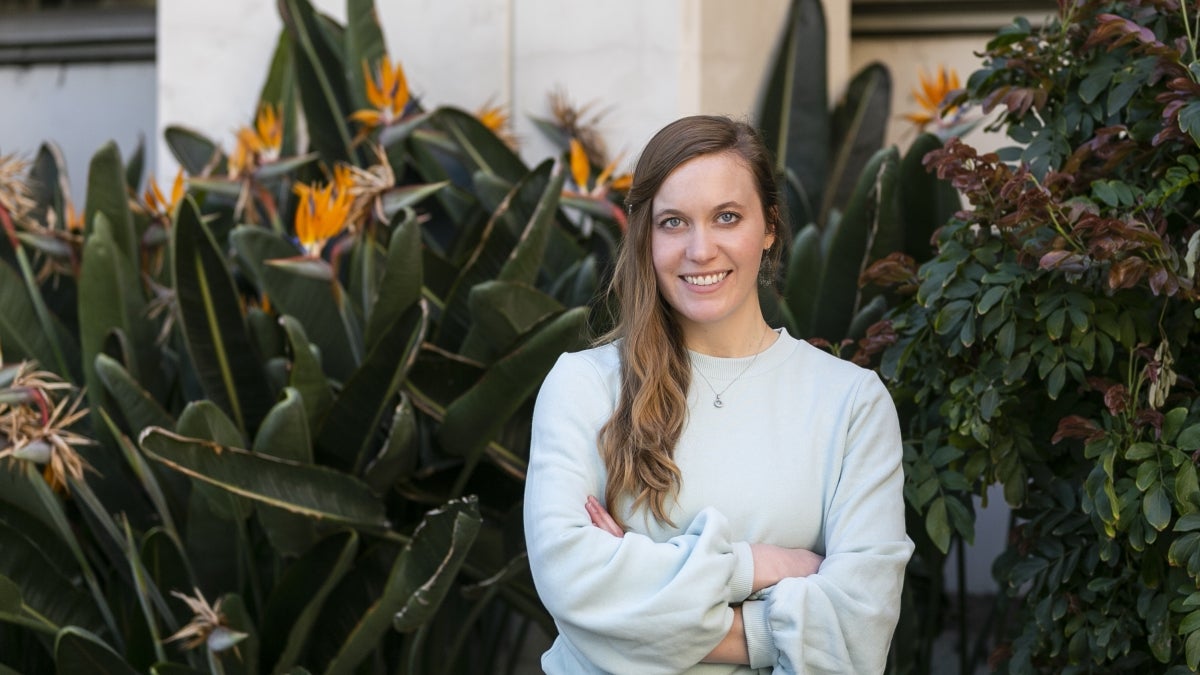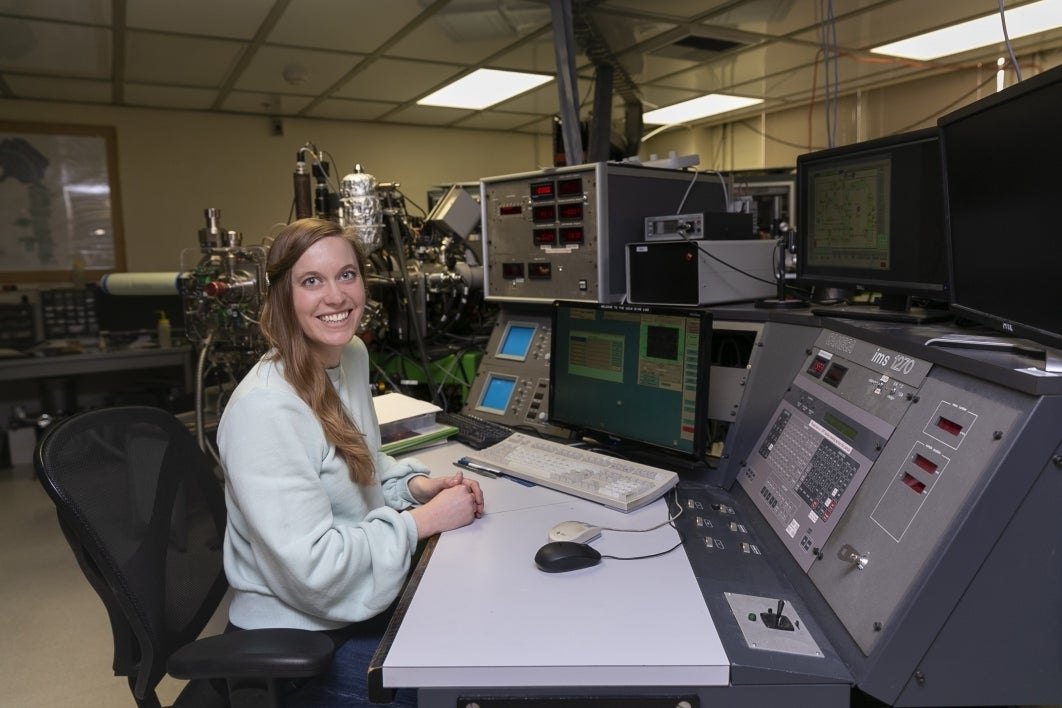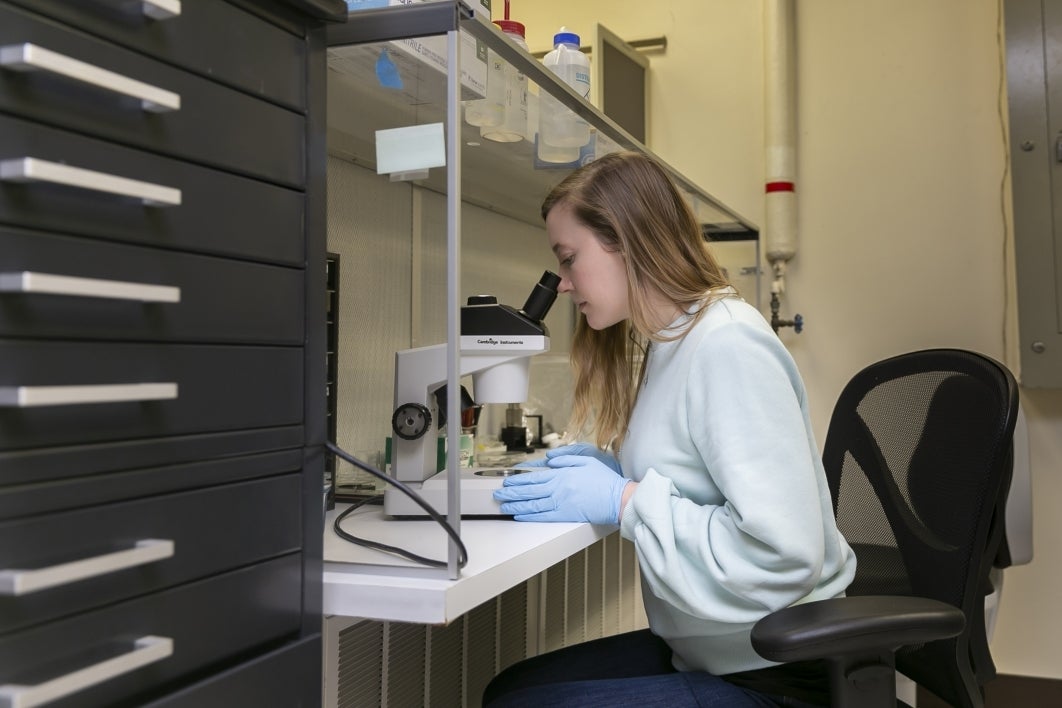ASU graduate student receives prestigious planetary astronomy fellowship

ASU School of Earth and Space Exploration graduate student Emilie Dunham. Photo Courtesy Mieke Strand/ Heising-Simons Foundation
The Heising-Simons Foundation has announced that Arizona State University School of Earth and Space Exploration and Center for Meteorite Studies graduate student Emilie Dunham has been selected for a 51 Pegasi b Fellowship in Planetary Astronomy. This fellowship provides exceptional postdoctoral scientists with the opportunity to conduct theoretical, observational and experimental research in planetary astronomy.
“I am incredibly proud of Emilie for being awarded this competitive fellowship, said Meenakshi Wadhwa, director of the School of Earth and Space Exploration and Dunham’s PhD adviser.
“This not only reflects well on her, but also on our school and our graduate programs. Her fellowship project will provide some great insights into the earliest events in our solar system’s history, including the first stages of planet formation.”
Established in 2017, the 51 Pegasi b Fellowship is named for the first exoplanet discovered orbiting a sunlike star. The growing field of planetary astronomy studies celestial objects both within and beyond our solar system, bridging planetary science and astronomy. From accelerating understanding of planetary system formation and evolution, to advancing new technologies for detecting Earthlike worlds, 51 Pegasi b Fellows make a unique contribution to the field.
Dunham, who will receive her PhD in geosciences this May 2020, will be hosted by the Department of Earth, Planetary, and Space Sciences at the University of California, Los Angeles and will be studying the heritage of meteorites to develop a timeline for planet formation and other early solar system events.
In her fellowship, Dunham will test a novel prediction that Jupiter formed sooner and faster than previously thought, impacting the path of particles between the inner and outer regions of the solar system. She will measure and compare the properties of ancient meteorite samples from the two zones to either validate the theory or prompt its reconsideration.
“I love to look at meteorites in the lab and discover tiny grains that are older than the Earth. It’s profound to think about all the places they’ve been over those years,” Dunham said.
By investigating the history of such primitive rocky fragments, Dunham creates a clearer picture of how particles, dust and gas moved within our young solar system to eventually build planets. As an experimentalist, Dunham analyzes the composition of meteorite inclusions to scrutinize theories about how quickly the solar system formed. Clarifying the timing of early events not only helps astronomers comprehend how our solar system works today, but also provides clues as to the formation and evolution of distant exoplanets.
“I’m excited to work at the crossroads of astronomy and planetary sciences during my fellowship. It’s often at the intersection of diverse research areas where groundbreaking discoveries are made,” she said.
No matter the outcome, the robust dataset generated from Dunham’s work will allow for more informed comparisons between inner and outer objects in our solar system, and could unveil valuable knowledge about its origins.
The fellowship will provide Dunham with financial support for independent research, time and space to establish distinction and leadership in the field, mentorship by an established faculty member and attendance to an annual summit to develop professional networks, exchange information and ideas and foster collaboration.
About the Heising-Simons Foundation
The Heising-Simons Foundation is a family foundation based in Los Altos and San Francisco, California. The foundation works with its many partners to advance sustainable solutions in climate and clean energy, enable groundbreaking research in science, enhance the education of our youngest learners, and support human rights for all people. Learn more at hsfoundation.org.
More Science and technology

ASU professor breeds new tomato variety, the 'Desert Dew'
In an era defined by climate volatility and resource scarcity, researchers are developing crops that can survive — and thrive —…

Science meets play: ASU researcher makes developmental science hands-on for families
On a Friday morning at the Edna Vihel Arts Center in Tempe, toddlers dip paint brushes into bright colors, decorating paper…

ASU water polo player defends the goal — and our data
Marie Rudasics is the last line of defense.Six players advance across the pool with a single objective in mind: making sure that…



